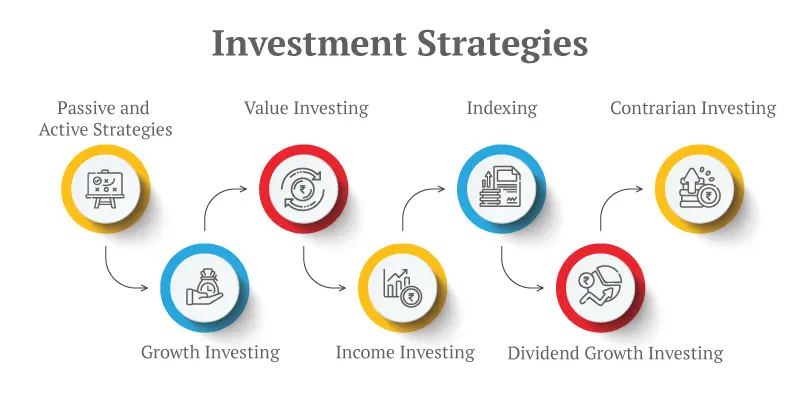Understanding Stock Market Indices: The stock market is a complex and ever-changing entity, influenced by various factors such as economic conditions, political events, and investor sentiment. To make sense of this vast landscape, stock market indices provide investors and analysts with a snapshot of market performance. In this article, we will delve into the world of stock market indices, exploring their purpose, calculation methods, and the significance they hold in the financial world.
I. What are Stock Market Indices ?
Stock market indices are statistical measures that represent a portion or a composite of the overall stock market. These indices are designed to track the performance of specific sectors, industries, or the entire market. By aggregating the performance of multiple stocks into a single number, indices provide a benchmark to assess market trends, evaluate investment strategies, and gauge overall market health.
II. Key Of Understanding Stock Market Indices
- S&P 500: The Standard & Poor’s 500 Index, commonly referred to as the S&P 500, is one of the most widely recognized stock market indices in the world. It includes the 500 largest publicly traded companies in the United States and covers approximately 80% of the total U.S. stock market capitalization.
- Dow Jones Industrial Average (DJIA): The DJIA is a price-weighted index comprising 30 large, publicly traded companies listed on U.S. stock exchanges. Often referred to as “The Dow,” this index represents various sectors, including technology, finance, and consumer goods, and is considered a barometer of the U.S. economy.
- Nasdaq Composite: The Nasdaq Composite Index focuses primarily on technology companies and represents a broad spectrum of the U.S. stock market. It includes over 3,000 stocks listed on the Nasdaq Stock Market, including major tech giants like Apple, Microsoft, and Amazon.
III. Calculating Indices of Stock Market
Stock market indices can be calculated using different methodologies, with the most common being price-weighted, market-cap weighted, and equal-weighted.
- Price-Weighted Indices: In a price-weighted index, stocks with higher prices have a greater impact on the index value. The DJIA is an example of a price-weighted index. However, this methodology can lead to distortions since higher-priced stocks may not necessarily have a larger market capitalization or represent a larger segment of the economy.
- Market-Cap Weighted Indices: Market-cap weighted indices, such as the S&P 500, consider the market value of each constituent stock. Stocks with larger market capitalizations exert a greater influence on the index’s movement. This approach provides a more representative view of the market since it considers both the price and market value of each stock.
- Equal-Weighted Indices: Equal-weighted indices assign equal importance to each constituent stock, regardless of their individual market capitalizations. This methodology provides an equal voice to both large and small companies, offering a different perspective on market performance.
IV. The Significance Stock Market
Stock market indices play a crucial role in the financial world and offer several benefits to investors, analysts, and the general public:
- Benchmarking: Stock market indices serve as benchmarks against which the performance of individual stocks, mutual funds, and portfolios can be compared. Investors use indices to assess whether their investments are outperforming or underperforming the broader market.
- Market Analysis: Analysts and economists rely on stock market indices to evaluate the overall health of the economy. By monitoring indices, they can identify market trends, sentiment shifts, and potential investment opportunities or risks.
- Investor Sentiment: Stock market indices often reflect investor sentiment and confidence in the market. A rising index may indicate positive investor sentiment, while a declining index may signal caution or pessimism.
- Investment Strategy: Stock market indices serve as a reference point for constructing investment strategies. Investors may choose to replicate the performance of a specific index through index funds or exchange-traded funds (ETFs) that track the index.
Stock market indices provide valuable insights into the performance of various sectors, industries, and the overall market. They serve as benchmarks, facilitating comparisons and evaluations of investment performance. Understanding the calculation methods and significance of these indices empowers investors to make informed decisions, while analysts gain valuable information to interpret market trends and assess economic conditions. Whether you’re an individual investor, financial professional, or simply interested in the world of finance, comprehending stock market indices is essential for navigating the complexities of the stock market.
Read Also: Value Investing Strategies
![]()





